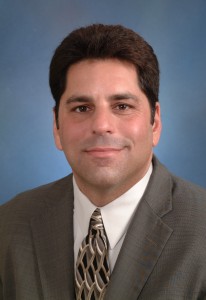On writing: Ami Neiberger-Miller sticks to the tried and true
We’ve arrived to the last On Writing interview of the year, and this month, I’ve turned to public relations maven (check out her Twitter handle below) Ami Neiberger-Miller. I met Ami at a PRSA conference a few years back where we both were presenting. Ami truly understands how PR works, and how important writing is to communicating effectively.

Ami Neiberger-Miller is a public relations strategist specializing in nonprofit organizations, associations and small businesses. She is the founder of Steppingstone, LLC, a communications and public relations agency. She has written educational curricula, a book, feature articles, press releases, infographics, training materials, websites, style guides, policy manuals, and much more.
Find her on Twitter at @AmazingPRMaven
1. What role does writing play in your work and how important a skill is it?
Writing is the lifeblood of my work in public relations and advocacy. I am constantly writing for news releases, feature articles, emails, strategic plans, social media and much more. Writing is an important skill because of the electronic age in which we operate. Even though people are reading content online, they are often reading written text when they view content online. And written text plays a role in shaping visual media now too – in the form of scripts, graphics and video.
2. Does writing well still matter in a digital/text/emoji world?
The craft of writing is very much alive and well today. Writing well matters even more in a digital world. Writing the right words has never been more important than it is today – because attention spans are shrinking. We have to share information much faster now and it’s even more challenging to get people to pay attention. There is still space for longer form writing, and with the internet, more opportunities to attract attention and be published. Digital options also offer writing opportunities – because scripts have to be created for videos, and copy has to be written for infographics, flipbooks, and all sorts of other materials.
3. What’s the best advice you’ve received or would give on how to improve writing skills?
To me one of the best skills you can develop in writing is delivering quality copy quickly. I am typically the person who tries to muscle through to finish the job and reach my word count for the day (and then some). But I’ve found that I do better if I take breaks when I get stuck or reach a point where copy is just not flowing. Taking a break can be as simple as going for a walk, making some tea, or packing up and working in a new environment. Returning with fresh eyes to your work can make a big difference. Just a short break can refresh your spirit.
I also find that I tend to do better with longer writing projects if I focus on them in the morning. By the end of the day, my creative juices are spent. While I can do “sausage-grinding” types of writing fairly late in the day and into the evening, I find I am typically more focused and creative in the morning. One of my favorite time slots for writing is 4-6:00 a.m. (yes, I know that sounds insane) because it’s a time of day that’s quiet and distraction free. It’s also when my mind is freshest. If I wake up on a mission for a particular project – early morning is the time I want to use to write and pour out the words.
I also think it’s important to develop the ability to “free write.” Just getting what you want to say out is a triumph, even if it’s messy. Far too often, I see writers get paralyzed by wanting to be sure that what they write initially is correct or concise. I may be the kind of person who proofreads restaurant menus for typos, but I can’t apply that same eagle eye to newborn writing as it’s pouring out. Getting the initial “brain dump” done can be cathartic and help you organize. Editing can come later. Respect the process so you don’t lose a great thought or element because you got caught up in the details. Being able to just sit down and “free write” without judging yourself is a really helpful practice to develop.
4. What are your top three writing resources or references?
I am old-fashioned in that I still keep on the shelf near my desk a red Webster’s New World Dictionary (that I won for an essay I wrote in sixth grade so it is horribly out of date but beloved). Next to it are a thesaurus and a Bartlett’s Familiar Quotations. To me, those are the big three. But I readily admit that I don’t take them out very often. I keep a lot of writing books nearby too. I have some favorite online resources, such as Purdue University’s Online Writing Lab and Grammar Girl. I also like Ann Wylie’s writing workshops (which I take as webinars through my PRSA membership). On Twitter, I search for #writing #quote when I need an inspirational pick me up. I also subscribe to Women on Writing.
5. Do you follow a style guide, and if so, which one?
I don’t really follow a style guide with my own writing. If I am doing a project for a client, I use whatever style guide they prefer. Increasingly, clients are issuing their own style guides and making variations from the major style guides, as style has become tightly linked to branding. I keep on my shelf the following: the Associated Press Stylebook, the Chicago Manual of Style, the Elements of International English Style and the Publication Manual of the American Psychological Association.
6. What’s your top writing/grammar/usage pet peeve?
My most cringe-worthy writing gaffe is when I double up a sentence, as in “today we are going to announce that XYZ is today.” It’s an easy mistake that can be caught by proofreading. For some reason though, it’s one of my bad habits.
7. What’s your favorite word and what’s your least favorite?
Favorite word: partner
Least favorite word: innovate
It’s always good practice to keep tried and true resources at your fingertips. Like Ami, every writer should have a dictionary and thesaurus nearby. The various style guides are invaluable, and AP and Chicago both have very good online versions by subscription.
Coming up later in December will be a recap of the On Writing advice. Please keep an eye out for it here and/or on Twitter, LinkedIn, and Facebook.
About Deborah Brody
Deborah Brody writes and edits anything related to marketing communications. Most blog posts are written under the influence of caffeine.












